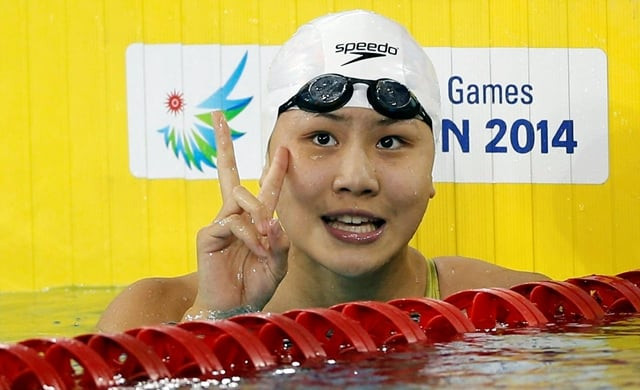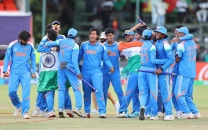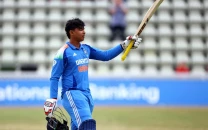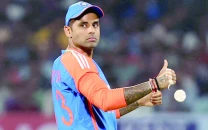Chinese swimmer Chen Xinyi fails doping test at Rio Olympics
18-year-old tested positive for hydrochlorothiazide on the day she came fourth in women's 100m butterfly final

Chen Xinyi celebrates after winning the women's 50m freestyle final swimming competition at the Munhak Park Tae-hwan Aquatics Center during the 17th Asian Games in Incheon on September 26, 2014. PHOTO: REUTERS
She tested positive for hydrochlorothiazide, a diuretic, on Sunday, it said. On that day the 18-year-old came fourth in the women's 100m butterfly final -- just 0.09 seconds away from a place on the podium.
Chen has applied to the International Olympic Committee for her B sample to be tested and for a hearing, it added.
Diuretics increase urination rates and can be used as "masking agents" to hide the presence of performance-enhancing substances that are screened for in doping tests.
The CSA "resolutely opposes use of banned substances", Xinhua cited it as saying in a statement.
Phelps claims 22nd gold with 200m individual medley win
"The CSA has taken this matter seriously and demanded full cooperation from Chen in the investigation," it added. "We will cooperate with the Court of Arbitration of Sport during its investigation and will respect the final ruling by the CAS."
Chen had been due to take part in the 50m freestyle heats later on Friday.
She first made the headlines when she won gold in the 100 metre butterfly and 50 metre freestyle events at the 2014 Asian Games, with times that set championship records.
China has already been embroiled in doping controversy in Rio after Australia's Mack Horton called Sun Yang, China's most successful swimmer, a "drugs cheat" -- inciting a social media firestorm and prompting a formal demand for an apology by Chinese officials.
Ethiopian swimmer booed back home for alleged nepotism
Sun served a three-month doping ban in 2014, which was only announced retrospectively by Chinese authorities.
French swimmer Camille Lacourt waded into the row after Sun won gold in the 200m freestyle final, telling a French radio station: "Sun Yang, he pisses purple."
In March, the CSA revealed that six Chinese swimmers had tested positive for drugs in the preceding months, including three for hydrochlorothiazide. Two of the six athletes were disciplined with only warnings.
Swimmers from other countries have also been caught up in disputes in Rio.
After American Lilly King beat tainted Russian rival Yulia Efimova in the 100m breaststroke final, she said: "I think it just proved that you can compete clean and still come out on top."
Lianna Swan to represent Pakistan in 50m freestyle event at Olympics
US superstar Michael Phelps has demanded life bans for swimmers with a drug record.
An explosive report by the World Anti-Doping Agency (WADA) last year alleged a "state-sponsored" doping conspiracy across Russian sport.
It set off the biggest doping scandal in Olympic history, with world athletics chief Sebastian Coe this week blasting Moscow's "cataclysmic failure" to protect athletes.
All but one of Russia's track and field athletes were banned from Rio, but the International Olympic Committee decided to allow other Russians to compete at the Games, despite calls for the team to be banned outright.



















COMMENTS
Comments are moderated and generally will be posted if they are on-topic and not abusive.
For more information, please see our Comments FAQ